detail profile cl c3 a1udia abreu
Peran Yang Di Mainkan Cláudia Abreu
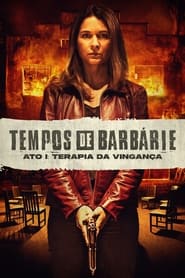 During an attempted robbery the daughter...
During an attempted robbery the daughter...Tempos de Barbárie – Ato I: Terapia de Vingança 2023
During an attempted robbery, the daughter of the lawyer Carla's is shot and in serious condition. With no answers, Carla tries to move on with her life by seeking help from support groups. Unable to accept his daughter's fate and the lack of solutions on the part of the police, he transforms the search for justice into a search for revenge and tests his own limit to see how far he could go.
 When executive Ricardo is found shot...
When executive Ricardo is found shot...The Silence of The Rain 2020
When executive Ricardo is found shot dead in the seat of his car without suspicion, Inspector Espinosa and police officer Daia are in charge of the case and soon begin to investigate the people closest to the victim. But when everyone involved in the case mysteriously disappears, the situation takes on unexpected proportions.
 Berenice is a dedicated female taxi...
Berenice is a dedicated female taxi...Berenice Seeks 2017
Berenice is a dedicated female taxi driver in Rio de Janeiro. She is consumed by her job and the little free time she has needs to be divided between raising her son Thiago, a teenager exploring his sexuality, and her troubled relationship with her husband Domingos, a police reporter. The scars of the worn-out relationship, ruined by her husband's violent outbursts, have erased her femininity and led her into a great existential emptiness. The murder of Isabelle, a beautiful transgender woman, on Copacabana Beach, ignites her investigative side and transforms her life.
 A young physician coordinating the transfer...
A young physician coordinating the transfer...The Trace We Leave Behind 2017
A young physician coordinating the transfer of patients between state-run hospitals in the city of Rio de Janeiro struggles with a mystery: a patient goes missing one night and completely disappears from the system. As the doctor attempts to find out the truth, he slowly loses his sense of reality.
 Two years of research and visits...
Two years of research and visits...Brazilian Cinema in the 20th Century 2017
Two years of research and visits to collections, cinematheques and museums; almost seventy interviews that generated 30 hours of recorded material; more than two hundred scanned photos and more than one hundred films watched. In total, more than a thousand hours of work were needed to prepare Brazilian Cinema in the 20th Century. The work is a fascinating journey through all the cinematic cycles that Brazil lived, from the pioneering Belle Époque, through the great studios like Atlântica and Cinédia, Cinema Novo, the urban comedies of the 70's, until the resumption in the late 90's. The documentary is unique, it gives the floor to who really wrote and lived this story intensely.
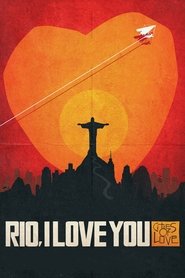 The third episode of the Cities...
The third episode of the Cities...Rio, I Love You 2014
The third episode of the Cities of Love franchise, Rio, I Love You is an anthology, created by 10 visionary directors from across the globe. The story line of each segment focuses on an encounter of love in a different neighborhood of the city, demonstrating the distinctive qualities and character of that location. The film serves to bridge gaps between cultures, educating and entertaining the audience, while celebrating unique and universal expressions of love.
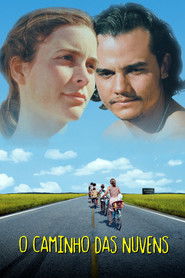 Romo illiterate and unemployed feels destiny...
Romo illiterate and unemployed feels destiny...The Middle of the World 2003
Romão, illiterate and unemployed, feels destiny drawing him on an odyssey to Rio de Janeiro in pursuit of a job and a decent life. A family of seven journeys 2,000 miles across the hinterlands of Brazil on bicycles. Along the way, the story explores the inner dynamics of a family facing a great challenge with the courage to pursue dreams.
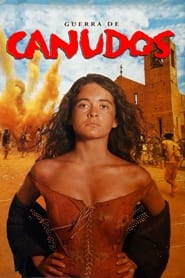 At the end of the 19th...
At the end of the 19th...The Battle of Canudos 1997
At the end of the 19th century, a poor family comes to the rural Canudos, a community led by Antônio Conselheiro, seen by many as a holy prophet. Their ways bother the powerful people of the region, and the newly founded Republic sends their army to destroy the settlement, which culminates in one of the bloodiest wars in the history of Brazil.
 Fernando a journalist and his friend...
Fernando a journalist and his friend...Four Days in September 1997
Fernando, a journalist, and his friend César join terrorist group MR8 in order to fight Brazilian dictatorial regime during the late sixties. César, however, is wounded and captured during a bank hold up. Fernando then decides to kidnap the American ambassador in Brazil and ask for the release of fifteen political prisoners in exchange for his life.


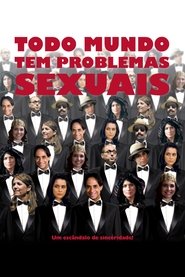 Divided in five segments Todo Mundo...
Divided in five segments Todo Mundo...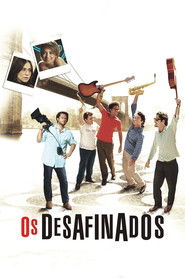 A group of friends come of...
A group of friends come of...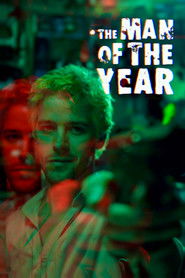 Maiqul has lost a bet and...
Maiqul has lost a bet and... Rio de Janeiro 1886 A precious Stradivarius...
Rio de Janeiro 1886 A precious Stradivarius...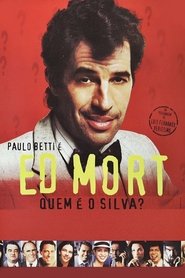 A detective is hired by a...
A detective is hired by a... After being exiled for 26 years Tieta...
After being exiled for 26 years Tieta...